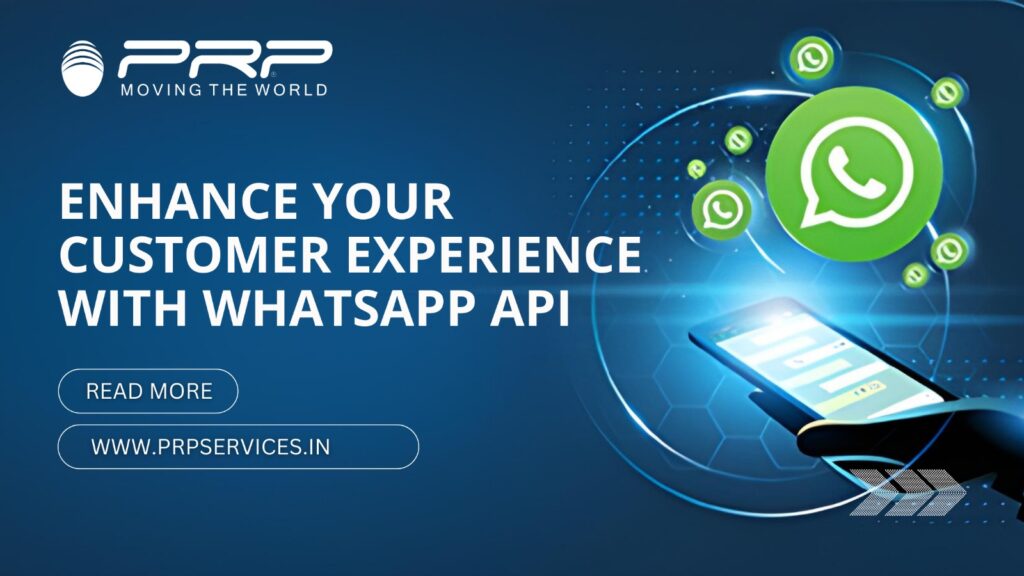WhatsApp API is valid for groups that enhance client verbal exchange and engagement. However, enforcing and dealing with this API can come with its own set of demanding situations. This blog explores unusual problems, exceptional practices for overcoming them, and why PRP Services is the appropriate partner to use WhatsApp API to its fullest capacity.
Common Challenges with WhatsApp API
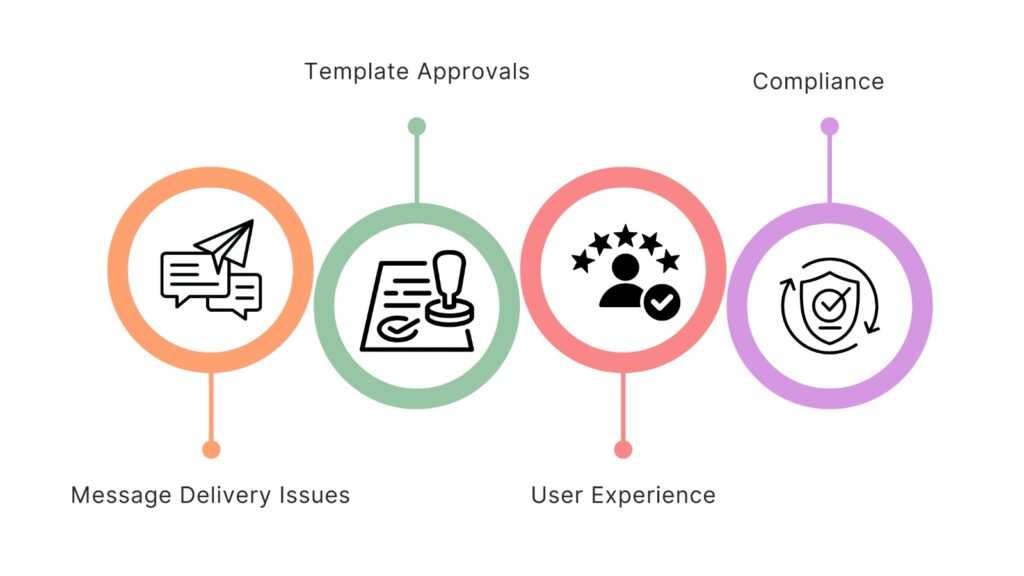
- Message Delivery Issues: One of the number one challenges groups face with WhatsApp API is ensuring well-timed and reliable message shipping. Network troubles, platform boundaries, or high traffic volumes can lead to behind-schedule or failed message shipping, impacting consumer revel in.
- Template Approvals: WhatsApp requires businesses to get their message templates accredited earlier than use. This technique can be time-consuming and, once in a while, irritating, especially when templates are rejected or require modifications.
- User Experience: Maintaining fantastic user enjoyment is essential. This involves balancing message frequency and content excellent. Overloading users with messages or sending content beside the point can lead to poor perceptions and decision-outs.
- Compliance: Adhering to WhatsApp’s phrases of carrier and statistics privateness policies can be complex. Businesses ought to ensure that they’re compliant with GDPR, CCPA, and other relevant guidelines to keep away from prison repercussions.
Best Practices for WhatsApp API
To overcome these challenges and make the most of WhatsApp API, consider the following best practices:
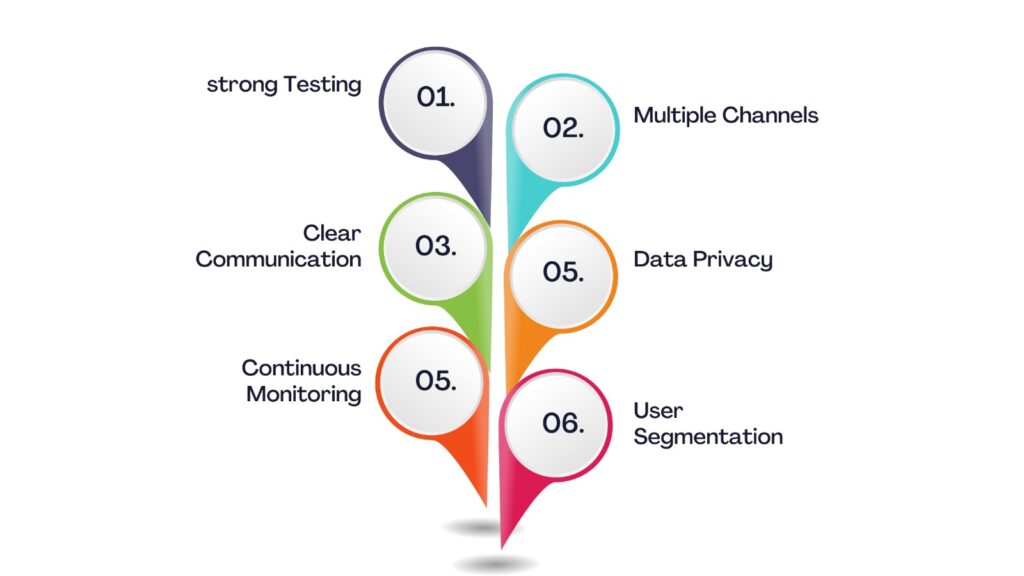
- strong Testing: Thoroughly test your API integration before going live. This includes testing various scenarios to identify and address potential issues related to message delivery, template approvals, and user interactions.
- Multiple Channels: Consider using other communication channels as a backup or for specific customer segments. This approach ensures that you can still reach your customers even if there are issues with the WhatsApp API.
- Clear Communication: Be transparent about how you will use WhatsApp and obtain user consent. Communicate the types of messages customers will receive and provide options to opt out if desired.
- Data Privacy: Protect customers’ information by implementing strong data protection measures. Ensure that your practices comply with data privacy regulations and that customers’ data is handled securely.
- Continuous Monitoring: Track message delivery rates, user engagement, and other key metrics to optimize performance. Regular monitoring helps identify trends, resolve issues promptly, and enhance overall effectiveness.
- User Segmentation: Adapt messages to the preferences and behaviors of customers. Segmenting your audience allows for more personalized interactions, which can improve engagement and satisfaction.
Specific Use Cases for WhatsApp API
WhatsApp API can be leveraged in various industries to enhance communication and operational efficiency:
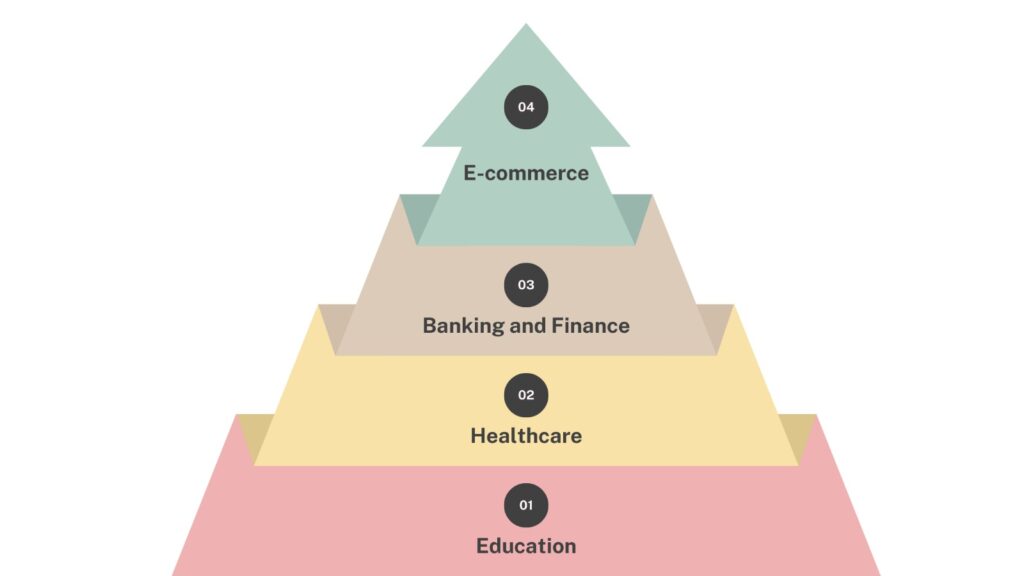
E-commerce
- Order Confirmations: Send automated order confirmations to keep customers informed.
- Shipping Updates: Ensure that the shipping status is updated in real-time.
- Customer Support: Offer instant support for queries and issues.
- Promotional Offers: Share personalized offers and discounts.
- Payment Reminders: Remind customers of pending payments or subscriptions.
Banking and Finance
- Account Balances: Notify customers of their account balance and recent transactions.
- Transaction Alerts: Send alerts for transactions and suspicious activities.
- Customer Support: Assist with account-related inquiries.
- Appointment Reminders: Remind customers of scheduled appointments.
- Fraud Alerts: Alert customers to potential fraudulent activities.
Healthcare
- Appointment Reminders: Notify patients of upcoming appointments.
- Prescription Refills: Send reminders for prescription refills.
- Patient Updates: Provide updates on treatment plans or test results.
- Appointment Confirmations: Confirm appointment bookings with patients.
Education
- Admission Notifications: Inform students about admission status and requirements.
- Fee Reminders: Send reminders for tuition fees and other payments.
- Exam Schedules: Provide schedules and important dates for exams.
- Student Support: Offer support for student-related queries and issues.
Case Studies: Real-World Success Stories
- Case Study 1: E-Commerce Retailer A leading e-commerce retailer implemented WhatsApp API to streamline order confirmations and shipping updates. By integrating automated messages, the retailer improved communication efficiency and customer satisfaction. The retailer saw a 30% increase in customer engagement and a 20% reduction in customer service inquiries.
- Case Study 2: Banking Sector A major bank used WhatsApp API to send real-time transaction alerts and fraud notifications. The bank integrated the API with its CRM system to provide personalized customer support. This resulted in a 25% decrease in fraud-related issues and a 15% increase in customer satisfaction scores.
- Case Study 3: Healthcare Provider A healthcare provider utilized WhatsApp API for appointment reminders and prescription refills. The integration helped reduce missed appointments by 40% and improved patient adherence to medication schedules by 30%. The provider also received positive feedback for the enhanced communication experience.
Key Features of WhatsApp API
WhatsApp API offers a range of features that empower businesses to communicate effectively with their customers:
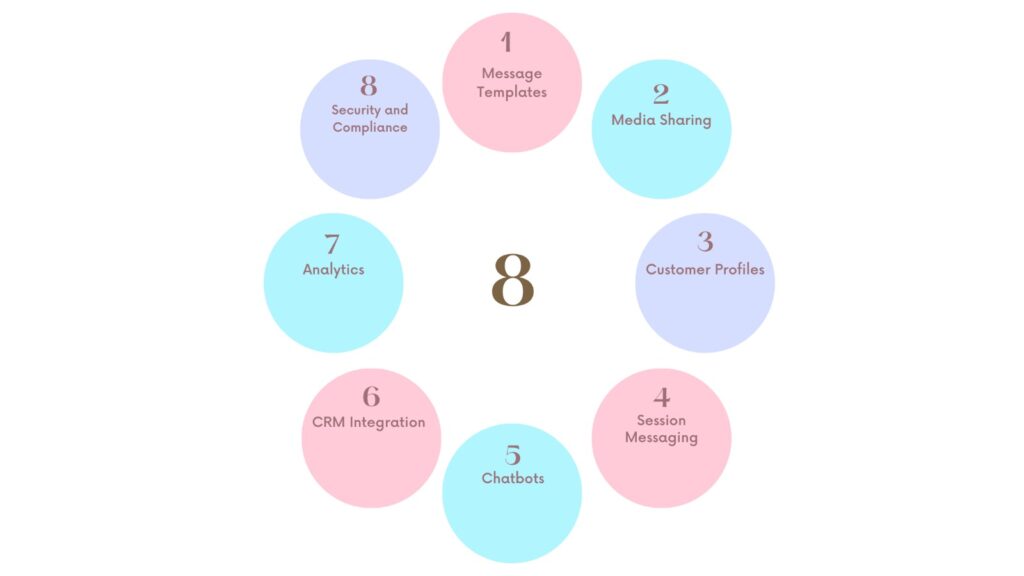
- Message Templates: Use pre-approved formats like order confirmations and appointment reminders.
- Media Sharing: Send images, videos, documents, and location details.
- Customer Profiles: Store and access customer information for personalized interactions.
- Session Messaging: Maintain ongoing conversations without needing new templates.
- Chatbots: Automate interactions and provide instant responses to customer queries.
- CRM Integration: Sync customer data between WhatsApp and your CRM system for seamless interactions.
- Analytics: Track message performance, user engagement, and other key metrics to optimize campaigns.
- Security and Compliance: Ensure data privacy and adhere to relevant regulations.
Why Choose PRP Services for WhatsApp API
PRP Services offers a strong solution for businesses leveraging WhatsApp API effectively. Here’s why you should consider PRP Services:
- Comprehensive Support: PRP Services provides end-to-end support for WhatsApp API integration, ensuring a smooth setup and implementation process.
- Advanced Features: Our platform offers advanced features like real-time analytics, CRM integration, and chatbots to enhance communication strategies.
- Customizable Solutions: We offer customizable solutions tailored to your business needs, ensuring you get the most out of WhatsApp API.
- Expertise and Experience: With years of experience in the industry, PRP Services has the expertise to help you navigate the complexities of WhatsApp API and optimize its use for your business.
- Data Security: We prioritize data security and compliance, ensuring customer information is protected and handled according to relevant regulations.
- Continuous Improvement: Our team provides continuous monitoring and support to help you address any issues promptly and improve your overall performance.
Frequently Asked Questions (FAQs)
WhatsApp API allows businesses to enhance customer communication and engagement by providing features such as templates, interactive messages, and real-time updates. This can improve customer satisfaction, streamline operations, and increase efficiency.
To ensure timely message delivery, thoroughly test your API integration, monitor network conditions, and consider using backup communication channels. Continuous monitoring of delivery rates and promptly addressing potential maintenance message delivery.
Best practices include robust testing before going live, clear communication with users about message types and consent, protecting data privacy, continuously monitoring performance metrics, and segmenting your audience for personalized interactions.
WhatsApp API can be used in various industries, such as sending order confirmations and shipping updates in e-commerce, real-time transaction alerts in banking, appointment reminders in healthcare, and admission notifications in education.
PRP Services offers comprehensive support for WhatsApp API integration, advanced features like CRM integration and chatbots, customizable solutions tailored to business needs, extensive industry experience, data security and compliance, and continuous monitoring and support to optimize performance.
Conclusion
WhatsApp API offers a powerful platform for enhancing customer communication and engagement. By understanding common challenges and implementing best practices, businesses can leverage this tool to drive growth and improve customer experiences. Partnering with PRP Services ensures you have the expertise, support, and features to make the most of WhatsApp API and achieve exceptional results.
Contact PRP Services today to learn more about our WhatsApp API solutions and discover how we can help you enhance your customer interactions.
Call us at 1800-313-5152

